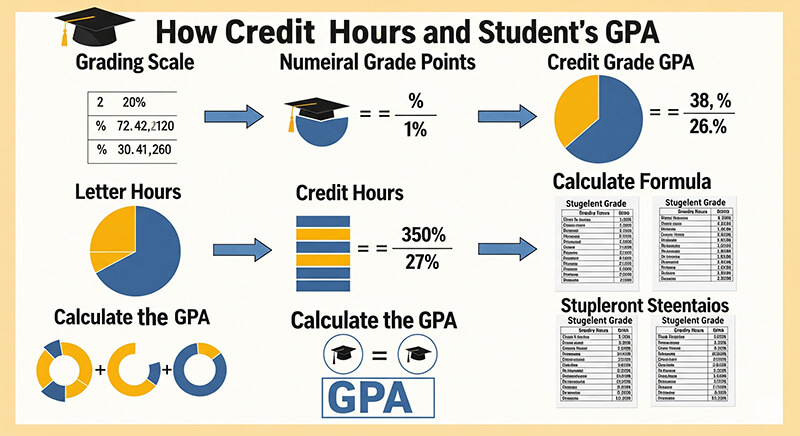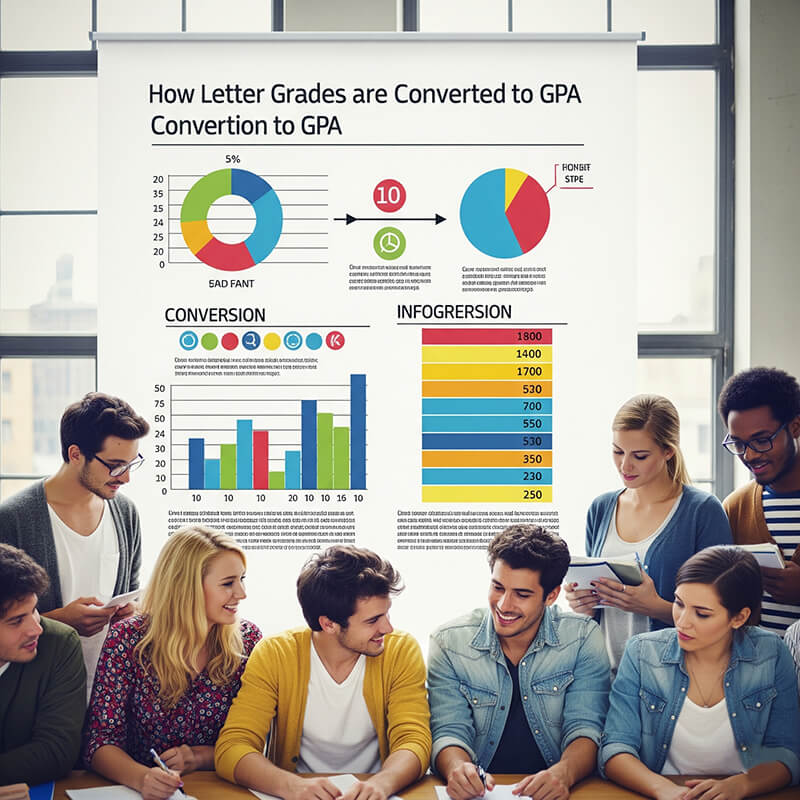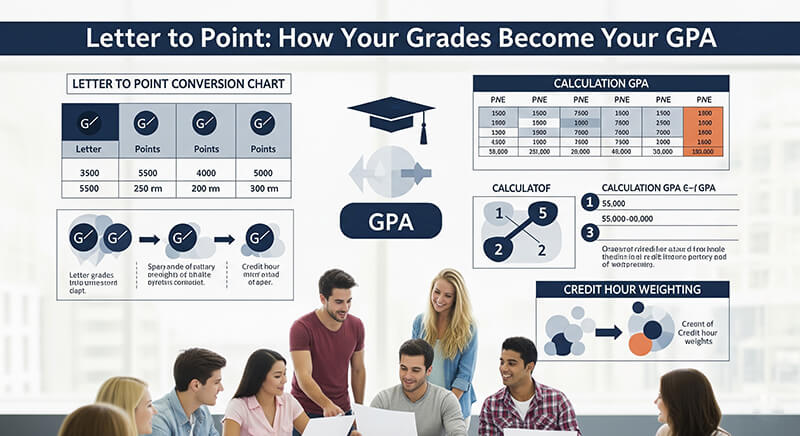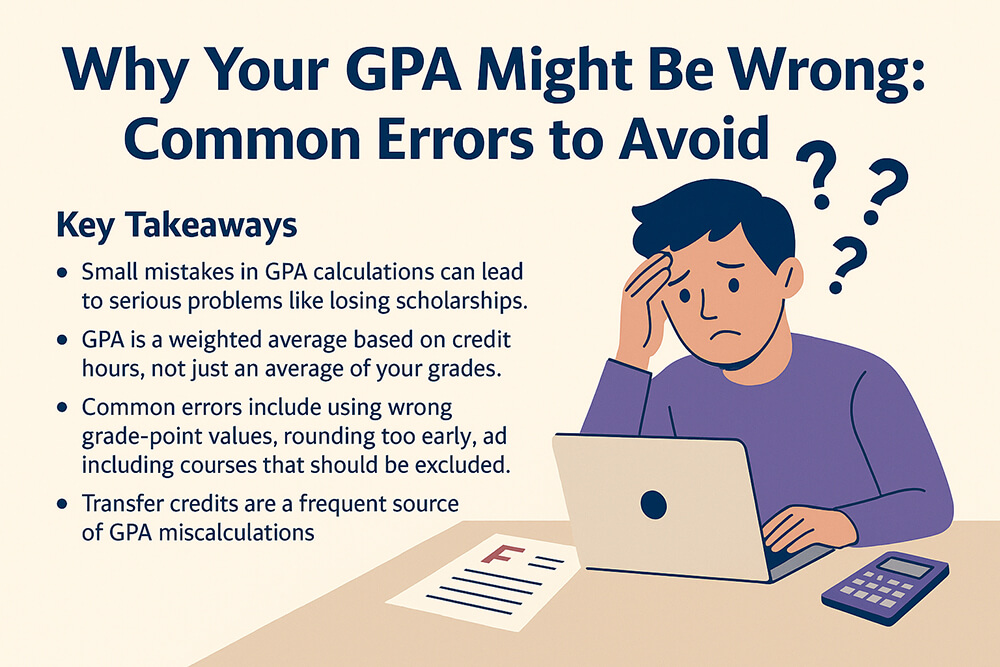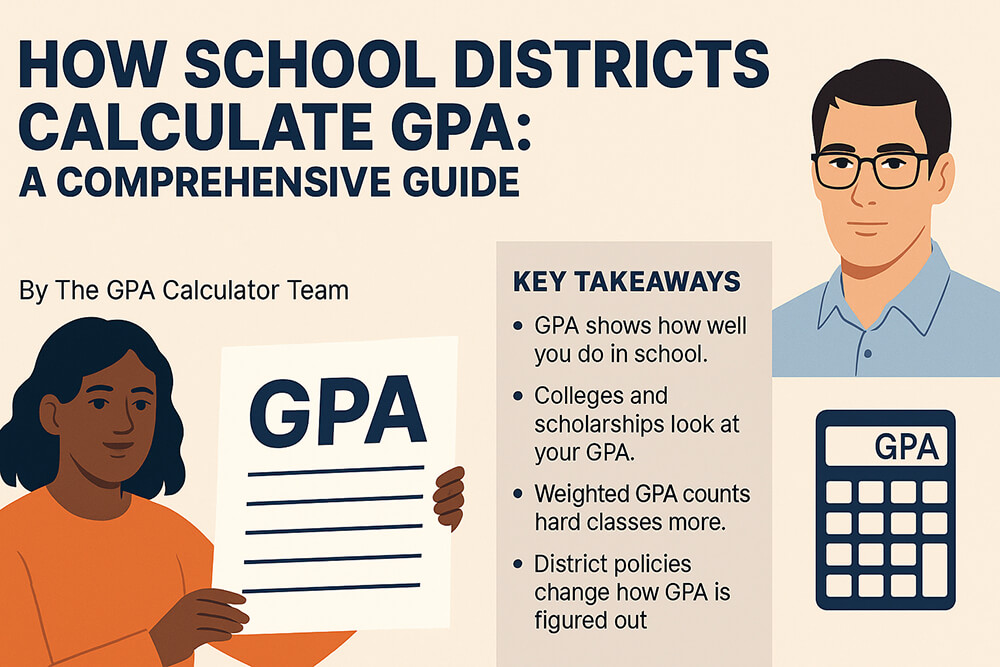Key Takeaways
- Strategically Boost Your GPA: Retaking a course can significantly improve your GPA, especially if your school has a grade replacement policy.
- Know Your School's Policy: Policies differ; some schools replace the old grade, while others average the two. This changes the impact on your GPA.
- Use a Recalculator: A repeat-course GPA recalculator helps you estimate your new GPA before you commit to retaking a class.
- Credit Limits Apply: Most universities limit the number of credits or courses you can retake for grade replacement (often 12-16 credits).
- Transcripts Show Everything: Even with grade replacement, both the original and new grades typically appear on your official transcript.
How Does a College GPA Calculator Work?
A College GPA Calculator is a simple tool. It helps you understand your academic standing. You enter your grades and the credit hours for each class. The calculator multiplies your grade's point value by the credit hours to find your total quality points. Then, it divides your total quality points by your total credit hours. The result is your Grade Point Average (GPA). This process is based on a standard gpa formula guide. Learning how to calculate gpa puts you in control of your academic future.
Understanding Key GPA Components
Your GPA depends on two main things: quality points and credit hours. A credit-hour weighting gpa guide shows that courses with more credits have a bigger impact on your GPA. A 4-credit class affects your GPA more than a 1-credit class. Quality points are the values assigned to your grades. An 'A' is worth more points than a 'C'. Understanding the difference between quality points vs gpa explained is key to managing your grades effectively.
Converting Grades to GPA Points
Each letter grade you receive has a point value on a 4.0 scale. A standard letter to point gpa conversion guide looks like this:
- A = 4.0 points
- B = 3.0 points
- C = 2.0 points
- D = 1.0 point
- F = 0.0 points
Some schools use a plus/minus system. Others might use a different scale entirely, like the one detailed in this 5.0 gpa scale guide. Always check which system your school uses to calculate your GPA accurately.
How Repeating a Course Changes Your GPA
Retaking a class can change your GPA in one of two ways.
- Grade Replacement: Many schools replace your old, lower grade with the new one. For example, if you get an 'F' and then retake the class for an 'A', only the 'A' is used to calculate your GPA. Both grades stay on your transcript.
- Grade Averaging: Some schools average both grades. The 'F' and the 'A' would both be part of your GPA calculation. This results in a smaller GPA boost compared to grade replacement.
A freshman year gpa predictor can be useful for new students to plan ahead, while a high school gpa calculator helps set a baseline before college.
Weighted vs. Unweighted GPA in Course Repeats
The difference between weighted vs unweighted gpa is important. Unweighted GPAs are on a 4.0 scale. Weighted GPAs give extra points for harder classes like Honors or AP. A gpa weighting guide honors ap shows an 'A' in an AP class might be worth 5.0 points. Repeating a weighted course can have a large effect on your GPA. Many weighted gpa myths debunked show that colleges still see the rigor of your courses. You can use a weighted vs unweighted gpa calculator to see the difference.
Special Cases: Pass/Fail, IB, and Trimesters
Not all grades fit the standard model. A guide on how pass-fail grades impact your gpa explains that these courses often do not affect your GPA unless you fail. For students with international credits, an ib to gpa conversion guide is essential. Additionally, schools on a different calendar may require a trimester gpa calculator to correctly compute term-based grades. It is important to know how your specific courses are treated.
Avoiding Common GPA Calculation Mistakes
Simple mistakes can lead to an incorrect GPA. A list of common gpa calculation errors to avoid includes forgetting classes or using the wrong credit hours. To ensure accuracy, you can use a transcript gpa audit guide to double-check your numbers against your official record. Also, be aware of trends like gpa inflation vs deflation, as they can provide context for your performance.
How Different School Districts Calculate GPA
Every school can have unique rules. The guide on how school districts calculate gpa shows this variation. Some use a 4.0 scale, while others use a 5.0 scale or higher for weighted grades. Always get your school's specific GPA policy from your academic advisor or the registrar's office. This ensures you are using the correct information when making decisions about repeating a course.
Frequently Asked Questions (FAQ)
What is the quickest way to improve my college GPA? The fastest method is to retake a course where you earned a very low grade, like a 'D' or 'F'. If your school uses a grade replacement policy, the new, higher grade will replace the old one, which can cause a significant GPA boost.
Will a repeated course look bad on my transcript? Most schools will show both the original and the repeated course on your transcript. However, graduate schools and employers often view the improved grade as a sign of persistence and academic growth.
How many courses am I allowed to repeat? This depends entirely on your university's policy. Many institutions limit the number of credits eligible for grade replacement, typically between 12 and 16 credits. Some may also limit the number of times you can attempt a single course.
What is the average GPA for graduate school admission? Most graduate programs require a minimum GPA of 3.0. However, competitive programs, especially at top-tier universities, often look for applicants with a GPA of 3.5 or higher.

